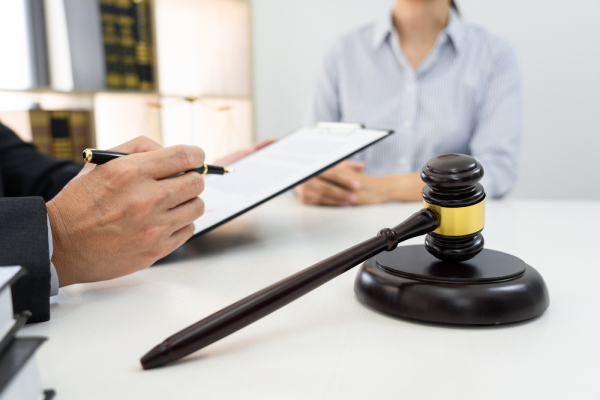Facing assault charges in Houston can be overwhelming, especially when the prosecution presents seemingly strong evidence against you. However, not all evidence is as solid as it appears. Surveillance footage, witness testimony, forensic reports, and even police statements can contain inconsistencies, errors, or bias. Understanding how to challenge this evidence is crucial to building a strong defense and protecting your rights. A skilled attorney knows how to question the validity of the prosecution’s case and expose weaknesses that could lead to reduced charges or even a case dismissal.
Working with a Houston assault defense lawyer is essential to navigating these challenges effectively. An experienced attorney will analyze the evidence, identify inconsistencies, and challenge unreliable witness testimony. They may also dispute improper police procedures, highlight constitutional violations, or present counter-evidence that supports your side of the story. With a strong legal strategy, you can fight back against the charges and work toward the best possible outcome in your case.
Exploring the Chain of Custody
Preserving the integrity of evidence, from its collection to presentation, is vital in proceedings. Lawyers carefully examine the chain of custody to spot any vulnerabilities. If there is a gap in this chain, the evidence could be rendered unusable. Each handover should be recorded to maintain its reliability. Any inconsistencies or missing records could doubt the evidence’s credibility and trustworthiness.
Questioning the Methods Used for Collecting Evidence
How evidence is gathered can greatly affect its credibility and reliability in proceedings. Lawyers frequently examine these techniques for any mistakes that may have occurred during the process of collecting evidence. Law enforcement must adhere to established procedures when obtaining evidence; any deviation from these protocols could raise doubts about the validity of the evidence. For example, if evidence was acquired without warrants or in violation of individuals’ rights, its admissibility might be questioned. Thoroughly questioning the methods used to collect evidence can uncover weaknesses that undermine the trustworthiness of the evidence.
Spotting Discrepancies in Statements
Witness testimonies play a key role in assault cases as lawyers strive to point out discrepancies in statements made by witnesses that may raise doubts about the prosecution’s storyline. It is common for varying narratives to surface during cross-examination, revealing inconsistencies or gaps in memory. By shedding light on these differences, legal experts can diminish the trustworthiness of witnesses, thereby diminishing the strength of the prosecution’s argument. This strategy is frequently successful in influencing how a jury views the evidence brought forth.
Harnessing the Expertise of Witnesses
Having expert witnesses involved in a case allows for viewpoints on the evidence to be considered carefully and thoroughly analyzed by professionals in the field who may offer perspectives that go against what the prosecution argues for. The insights provided by these specialists could be particularly beneficial in cases where they’re able to review physical evidence and present their findings that may challenge the conclusions drawn by the prosecution team. This introduction of perspectives through expert witness testimonies is significant as it brings uncertainties to light, which play a significant role in questioning the validity of evidence.
Delving into Perspectives
Introducing theories provides a way to question assault evidence from another angle. Lawyers might suggest scenarios to interpret the evidence for the defense team. By constructing stories to illustrate their point, they seek to show that the evidence is not as conclusive as the prosecution claims. This strategy prompts jurors to think about explanations, leading them to doubt the accuser’s guilt. Examining theories can be a method of weakening the prosecution’s argument.
Examining the Trustworthiness of Evidence
Lawyers frequently examine the reliability of the evidence presented by scrutinizing how DNA analysis and forensic materials were processed for accuracy and dependability. If the methods used are not scientifically robust or have acknowledged constraints, the evidence may lose its persuasiveness. Lawyers may also probe into the credentials of those conducting these analyses to cast doubt on the credibility of the evidence. This thorough review is crucial in ensuring that only credible evidence shapes the court’s deliberations.
Utilizing Mistakes in Procedures
Mistakes made during the investigation process or trial can be used to question the evidence presented in court effectively by lawyers who carefully spot errors as they can greatly impact the case’s direction and result. It is crucial to pay attention to errors in paperwork, failure to handle evidence properly, and incorrect procedures, as all these factors can sway the outcome of the case. The legal experts aim to undermine the prosecution’s argument by pointing out these slips. This strategy may result in certain evidence being excluded, ultimately strengthening the defense argument.
Conclusion
Effectively handling assault cases in courtrooms involves comprehension of tactics and meticulously managing evidence to guarantee a just trial procedure is followed thoroughly. Lawyers use methods to challenge and closely inspect assault evidence to ensure fairness in court proceedings. Legal experts aim to uphold justice by scrutinizing the chain of custody process and questioning how evidence was collected while seeking input from specialists.






